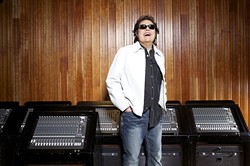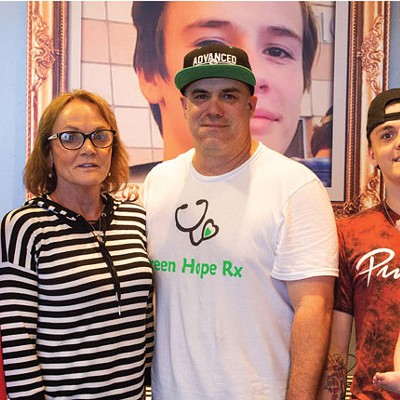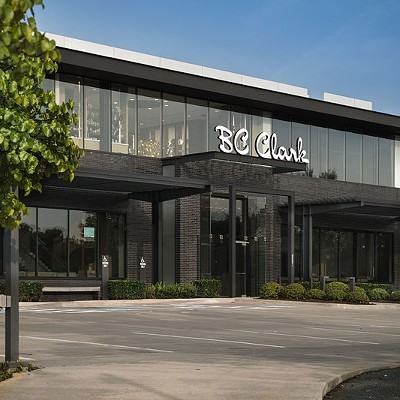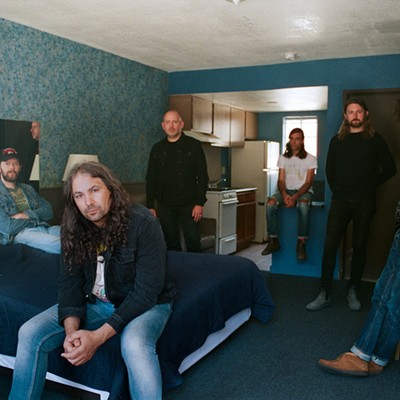Nearly 45 years ago, Ronnie Milsap started a Nashville career that took him to the apogee of country crossover stardom, scoring huge hits such as “It Was Almost Like a Song,” “(There’s) No Gettin’ Over Me,” “I Wouldn’t Have Missed It for the World” and “Any Day Now.” But before Milsap became a superstar, he played bills with Smokey Robinson and the Miracles and his friend and mentor, Ray Charles.
“I was in Raleigh, going to the school for the blind,” said Milsap, 74, who performs 7:30 p.m. March 30 at Rose State College Hudiburg Chevrolet Center, 6420 SE 15th St., in Midwest City. “I studied — oh, I don’t know — 13 years of classical music. I said, ‘I want to become a professional musician,’ and they said, ‘No. We can’t let you do that. You’re getting state money for a scholarship to go to college — you need to do something better than that.”
Milsap, who was born almost completely blind, went to the authority on making it as a sightless musician. He traveled to Atlanta and was escorted backstage by Charles’ pilot. Charles had recently left Atlantic Records and, at the time, was one of the most beloved singers in American pop music.
“I was sitting in there, playing Ray’s piano, when he came in,” Milsap said. “I said, ‘Mister Ray Charles, you are truly the high priest. I love your music, I’ve probably got all of your records and I want to become a professional musician like you.’ He said, ‘Well, play me something!’ So I played him two or three songs I was working on, and he said, ‘I can tell you love it, don’t you?’ I said, ‘Yes, I do; I just love it — I want to soak it up every day like a sponge.’ He said, ‘Well, son, you need to get in the middle of it and become a professional musician.’”
Having received the word of the oracle, Millsap returned to Raleigh completely validated.
“I said, ‘Ray Charles says it’s OK for me to become a professional musician!’”
Humble beginnings
So he did. Although Milsap received a full scholarship to Young Harris College in Georgia, he only stayed long enough to become established as a player in Atlanta’s burgeoning R&B scene. He declined a law school scholarship in 1964 and left school to play in an act called the Dimensions. With that band, he released his first single, “Total Disaster,” which became a regional hit on Princess Records. Milsap parlayed that moderate success into a recording contract with New York-based Scepter Records, which released his next single, the Nickolas Ashford/Valerie Simpson-penned “Never Had It So Good.”
The hits were few and far between, but Milsap frequently performed with his mentor, Charles, playing back-to-back so they could easily communicate. Eventually, Milsap received an offer to move to Memphis, where he worked for producer Chips Moman, best known for producing Alex Chilton’s first group, The Box Tops, Carla Thomas and Bobby Womack. Arriving in 1968, Milsap was right on time to record with Elvis Presley, who Moman was producing in the wake of Presley’s “’68 Comeback.” He performed on two of his late ’60s-early ’70s hits, “Don’t Cry Daddy” and “Kentucky Rain.”
“I got to spend some time with him,” Milsap said. “Oh man, he was humble and he was nice, real nice. Everybody out in Hollywood thought he was one of the nicest guys out there, and he was. And I don’t know that those movies meant a lot to him. I liked Elvis early on, when he was on Sun, before he hooked up with Colonel Tom Parker. As time went along, it wasn’t what it used to be, but is it for anybody?”
Elevator intervention
Then, in 1972, a decisive moment in Milsap’s life and career came. He was playing at the Whisky A-Go-Go and staying at the nearby Continental Hyatt House, the infamous “Riot House” that hosted Led Zeppelin, The Who, David Bowie and other superstars in the 1970s.
Milsap’s wife Joyce was in an elevator when she recognized country star Charley Pride. That chance meeting led to a phone call and a suggestion to Milsap that he try his hand at country music.
“I didn’t sing much country back then,” he said. “Pride said, ‘Man, you need to move to Nashville.’ I said, ‘I would if I had a job.’”
Milsap said that he believes in divine intervention because within weeks, he had an offer to play at Roger Miller’s King of the Road Hotel in downtown Nashville. The following year, Milsap signed to RCA Records and released his first country singles, the Top 10 country hit “I Hate You” as well as “Pure Love” and a version of Kris Kristofferson’s “Please Don’t Tell Me How the Story Ends,” which both went to No. 1.
What followed was country superstardom and crossover success on the pop charts, three Country Music Association Male Vocalist of the Year awards, a 1977 CMA Entertainer of the Year award, six Grammy Awards and the kind of massive success that tends to overshadow those early beginnings.
Milsap said he rarely plays those older songs anymore — the fans want to hear the favorites.
But he credits his background in R&B and rock with helping him achieve crossover success in the late 1970s.
“It was an exciting time and a fruitful time, all those years at RCA,” he said. “It was a dream come true.”
Print headline: R&B roots, Ronnie Milsap became a ’70s country superstar after years toiling as an R&B singer.













